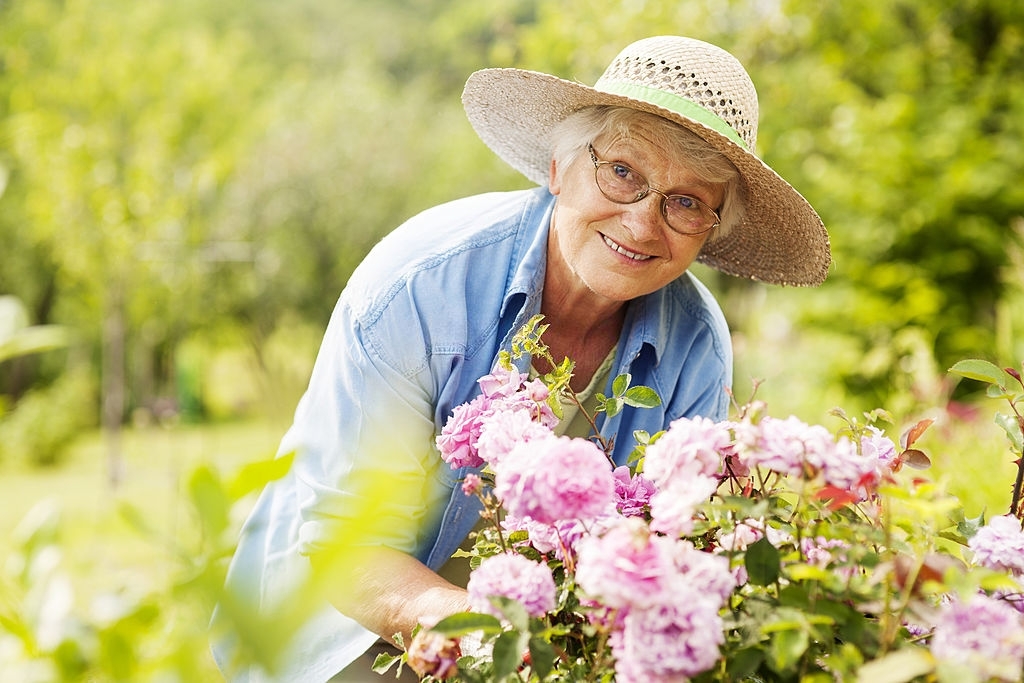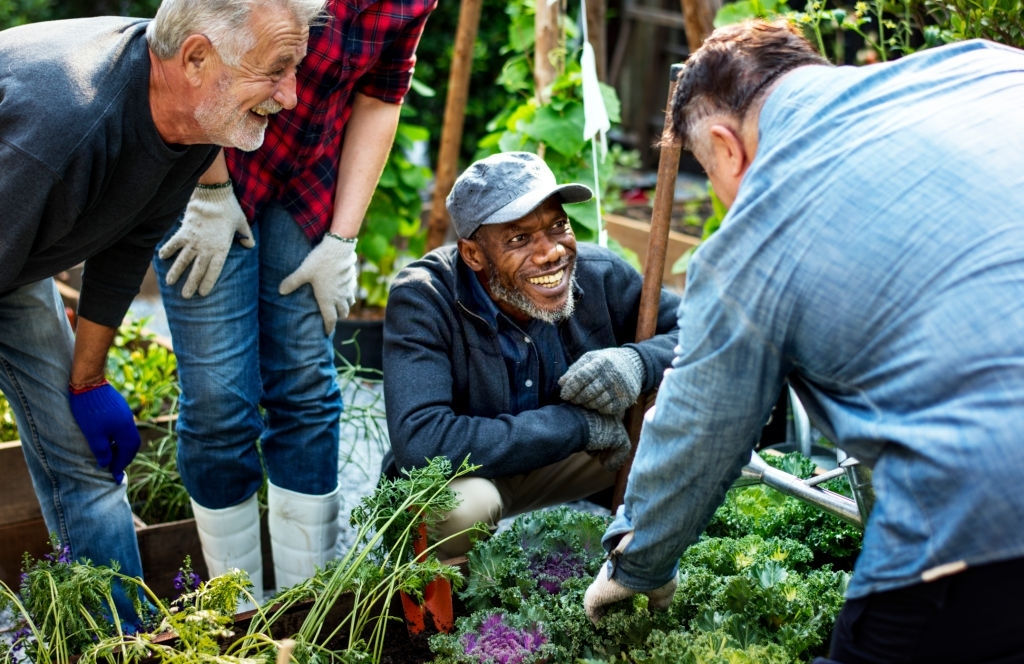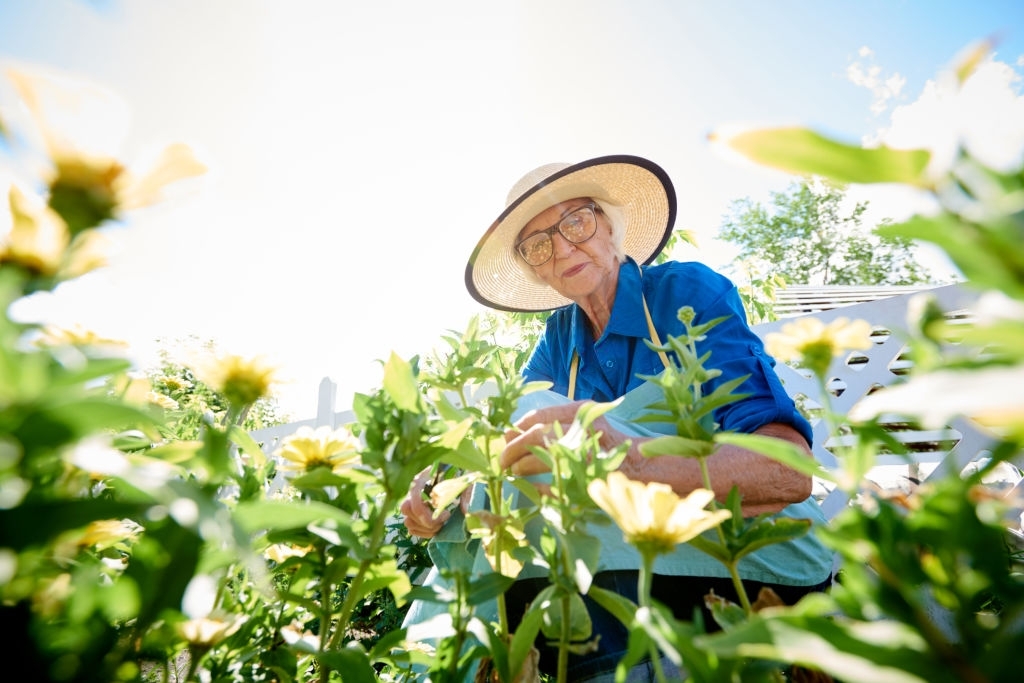8 Benefits of Gardening for Seniors with Dementia

As someone who looks after your senior loved one with dementia, you need to approach them positively. It would help if you let your senior loved ones feel that they are still valued and needed. In addition, you can help them divert the feelings of loneliness and sadness by encouraging your loved one to try different activities that promote brain health.
As a top health care agency in Bloomfield, New Jersey. We understand the peace of mind that most older adults dealing with dementia get when engaging with activities in the familiar environment that they call home. That is why Serenity Senior Care is here to provide you with the ideas and ways to give senior loved ones the comfortable life they deserve despite their struggles. One best activity you can introduce to your loved one or introduce again is Gardening.
Gardening provides many benefits for seniors with dementia. It is a therapeutic activity that engages your loved ones in a meaningful way. It also allows them to be in contact with nature, which is a very relaxing aspect. The physical exercise provided by the gardening activities will help improve overall health and mobility for your loved one.
This article will discuss some benefits of gardening for seniors and safe gardening tips for seniors with dementia.
8 Benefits of Gardening for Seniors with Dementia

1. It Improves Brain Function
Gardening is a great activity for your loved one because it engages their brain in multiple ways, including vision, smell, touch, and hearing. In addition to that, gardening also stimulates the senses. These activities can help improve memory and encourage learning new skills.
Gardening involves visual stimulation from colorful plants and flowers. If one of your loved ones has trouble recognizing colors or seeing objects clearly, you can help them remember different colors from a flower’s name or a plant’s shape. It is a great way to help them remember names and faces. Gardening is a physical activity that improves blood circulation in the brain.
2. It Reduces Depression
If your loved one has experienced a significant loss, such as a spouse or a grandchild, they may experience depression. Gardening is an excellent life stress reliever that relieves stress and makes your loved one feel better. It also gives them something positive to do when they do not have the energy to engage in other activities.
3. It Promotes Social Interaction
One of the biggest benefits of gardening is boosting your loved one’s desire to interact with other people. This benefit is beneficial because it helps them feel more connected to others and encourages their mind and body to connect with someone else. It also makes them feel better about themselves and their place in the world.
4. It Improves Mobility
Motor skills may be affected by dementia or another neurodegenerative disease. However, gardening is still an activity that your loved ones can enjoy without a high risk of falling or injuring themselves. It encourages movement and gets your loved ones to walk around the yard, which helps them strengthen their muscles for a better balance.
5. It Allows Them to Be in Contact with Nature
Often, seniors who have dementia have a hard time leaving their homes because they feel isolated from the rest of society. As a caregiver, you can encourage your aging loved one to spend time outdoors in nature surrounded by trees and flowers. It will help them from becoming depressed or anxious from being cooped up in their homes.
6. It Helps Slow the Progression of the Disease
Gardening is an activity that gets your loved ones out of their daily routine and makes them think differently. It stimulates seniors’ brains and improves their moods. These benefits may help slow the progression of the disease and make your loved ones feel more comfortable with their current situation.
7. It Offers a Sense of Purpose
Gardening can be a great way to improve your loved one’s quality of life because it gives them a sense of purpose and fulfillment. As they work on the garden, they have the opportunity to reflect on their lives and how they shaped up. In addition, they can learn a new skill that will help them feel more competent in all aspects of their life.
8. It Improves Overall Health
There are many benefits of gardening for seniors with dementia. The mental, emotional, and physical benefits are great for your loved one’s well-being. Gardening also improves overall health by exercising the muscles of the arms, legs, and trunk.
These physical activities keep your loved one’s joints healthy. It is especially important to help reduce the risk of falls since seniors may be at a higher risk for this type of fall than someone who is not having memory issues.
Tips for Helping an Aging Loved With Dementia Garden Safely

While gardening does have a risk of overheating, wandering, and falling, there are steps you can take to keep aging loved ones with dementia safe while garnering the benefits of gardening.
- Use Safe Tools – Gardening tools tend to be large and hard for people with limited dexterity to handle. To make garden activities safe, provide a lightweight gardening tool for seniors, such as: Spade, Garden Sprayer, and Garden Gloves.
- Keep Cold Water – make sure that she has a bottle of cold water to rejuvenate after being out in the hot sun working on her garden. It will prevent your loved one from becoming dehydrated and feeling dizzy or lightheaded because of the sun’s rays.
- Provide Non-Toxic Plants – it is essential to note that the plants you choose for your loved one’s garden don’t have any poisonous or toxic parts.
- Ensure Sun Safety – when your loved one sets up the garden, try to position them in a shaded area. In addition, tell her to wear a hat and use sunscreen to protect her from the sun’s harmful rays.
- Create a Garden Map – it is ideal to avoid confusion. The map should include the location of the plants and flowers and where benches, chairs, and other details are located in the garden.
- Limit Work Time – When you encourage your loved ones to work in their garden, make sure that you tell them how long they will work for each day. It will reduce anxiety and help avoid frustration since they will know how much time they have before taking a break and rest again.
The Takeaway
Even though dementia is a condition that slowly robs your loved ones of their memories, you can make gardening safe and rewarding for them. The benefits of gardening for those with dementia are clear. It provides exercises for the elderly, enjoyment, and stress relief while offering a sense of purpose and social interaction. So, consider encouraging your loved ones to start gardening as a way to help improve their lifestyle and overall health.


